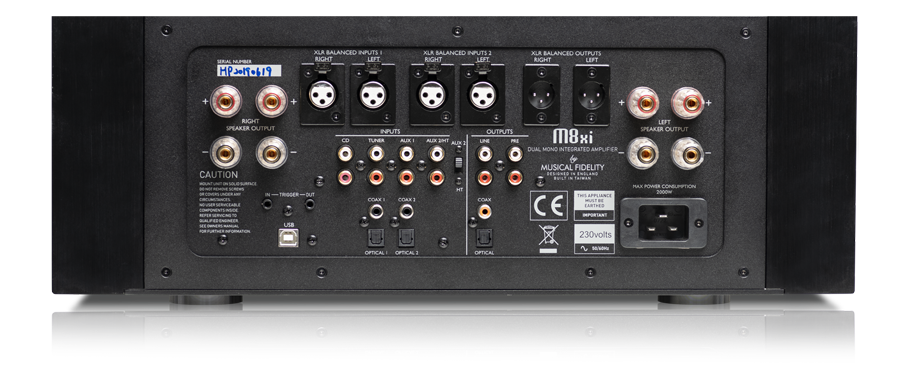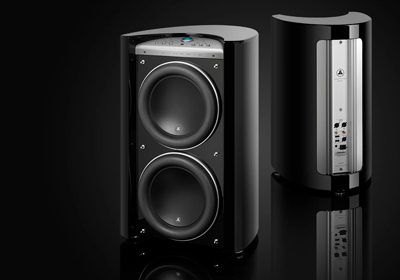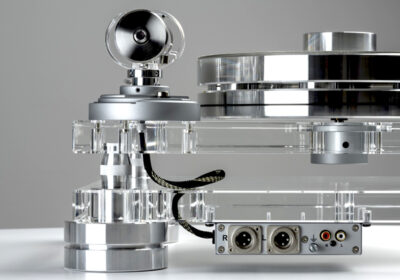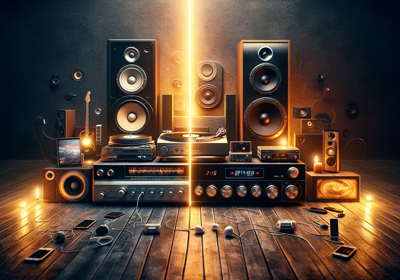I enjoyed a (lengthy) cup of coffee with Heinz Lichtenegger last weekend.
Heinz is the owner of Musical Fidelity, having purchased it from Antony Michaelson almost two years ago. It is Heinz’s goal to restore the brand to the glory days before Antony went into transition mode and started to wind production down.
If their latest release is any indication Heinz is on the right track. The M8xi integrated amplifier is an important release as it is the first totally new product from Musical Fidelity since the company changed hands. Thankfully Simon Quarry, the genius behind so many Musical Fidelity gems, has been retained as Technical Director and Designer.
The M8xi is a monster of an amplifier. Rated at 550 watts/channel it is designed to competently drive any loudspeaker in existence. The construction consists of a pre-amp with two mono-block power amps sharing the same chassis. Each component has its own power transformer and heat sinks. Most companies rate distortion measured at 1kHz, Musical Fidelity state a distortion rate of 0.004% at all frequencies from 20Hz to 20kHz. Its maximum peak output is 105 Amps, and while that may not mean much to many people to put it into perspective a 240V welder uses 90-100 amps, you could probably weld with this amp!
The M8xi has multiple inputs, including 4 pair of RCA and 2 pair XLR analogue inputs, plus 2 CoAx, 2 optical and 1 x USB input.
And it sounds great (after all it is a Musical Fidelity!).
Is this the perfect amplifier? – while it may come closer than most, the answer is no. Our conversation on the weekend drifted to this subject, and Heinz reminded me of something that we too often forget – there are compromises associated with most things we do in life, and an amplifier design is no different. One of the purest forms of amplifier design is tube based, but you need to contend with valve deterioration, limited definition in bass, heat etc. A pure Class ‘A’ design will sound better than an ‘AB’ design but has limited output and again generates a lot of heat. A purely balanced design will outperform an unbalanced design, but it costs more to build. Most consumers desire some digital circuitry in their amplifiers (DAC’s, streaming etc), but the digital circuitry can influence the performance of the analogue stage. The perfect amplifier does not exist, the best amplifier for you is the one where its attributes outweigh the compromises – and that is going to vary from customer to customer.
If you are in the market for a high-performance amplifier that will drive any load, that sounds great and has all the required digital inputs the M8xi should be on your shortlist – amplifiers don’t get much better. The M8xi sells for $10,995, more information here





